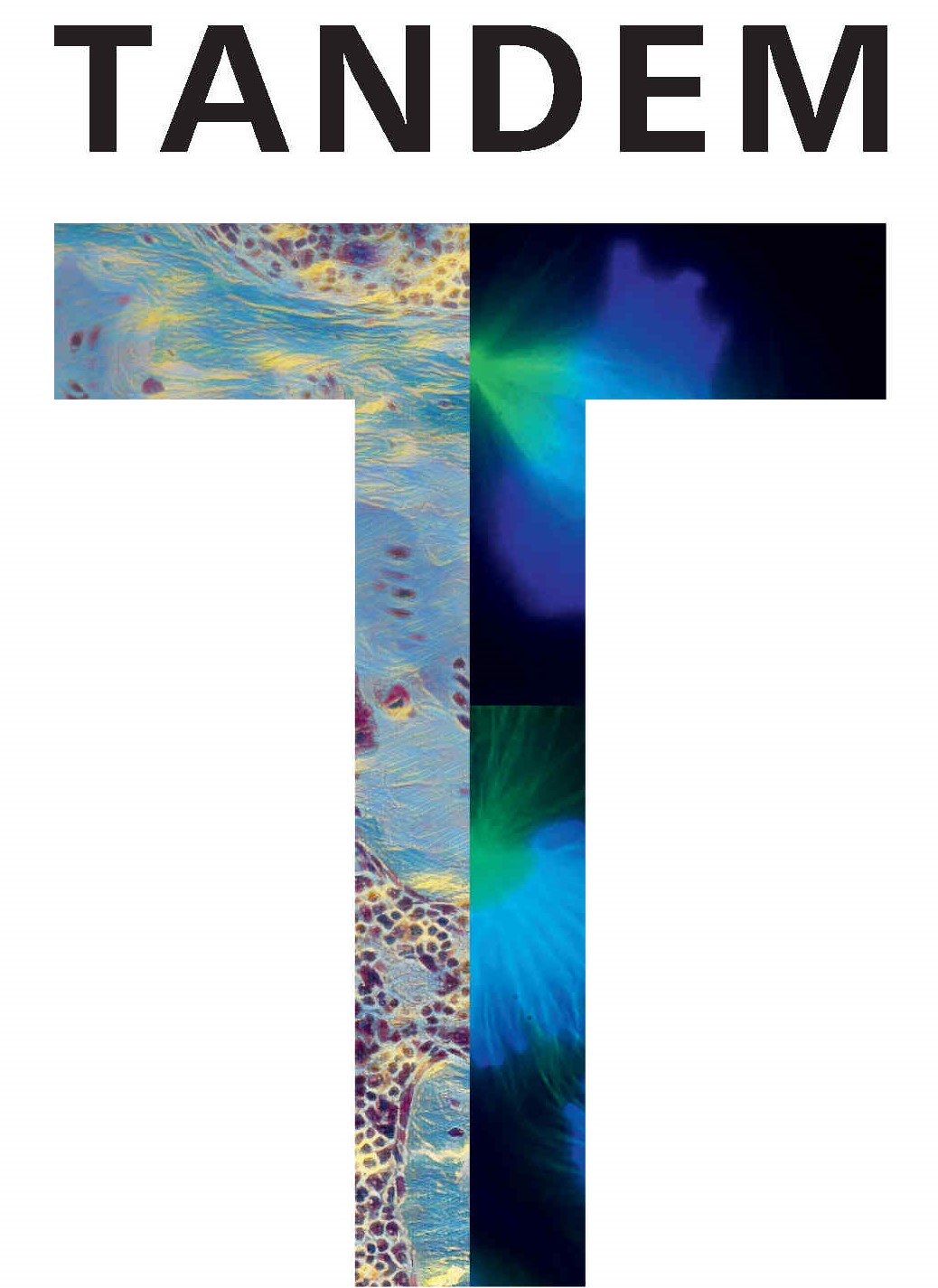Call for TANDEM projects 2024
Tandem: A call for translational cancer research projects co-led by a clinician and a scientist engaged in basic research
It is widely agreed that creativity and innovation take place at the interface of disciplines, when two mind-sets meet to solve a common problem. Inter- or multi-disciplinary teams are motivated by the challenge of sharing a common goal, forming a cooperative, not competitive collaboration. The AGORA cancer research center was built by the ISREC Foundation to bring together researchers from different institutions with a common goal – that of developing innovative therapies and diagnostics for cancer patients. Now for the third year, the ISREC Foundation launches a call for Tandem projects, in which pairs of clinicians and research scientists jointly design a translational research project that they will co-lead. The Tandem program will fund 2- or 3-year grants for the salaries of postdocs or research assistants who will be co-supervised by a team of equals, that is, one research scientist/engineer and one (or under exceptional conditions, two) clinicians. Applications are welcome from anywhere in Switzerland.
We are interested in training a cadre of ‘translational’ investigators who are well versed in the latest scientific techniques as well as clinical challenges. We hope to foster a “bedside-and-bench” rather than a “bench-to-bedside” approach to translational research, in which younger investigators are guided jointly by a clinician and a specialized scientist who have made the effort to define a common project. Bridging the “language barrier” between the clinic and basic research is often half of the challenge, thus we expect the co-written projects to reflect a strong collaboration between the scientist and clinical partners, addressing problems of immediate need in cancer therapy or diagnostics.

The goal of the Tandem program is thus both to advance clinically relevant discoveries in cancer therapy, and to produce postdocs and research assistants fluent in both the language of basic research and that of the clinic. Specific training can be covered, as well as funding to allow clinicians to spend time in a research lab (covering partial dispensation from clinical duties).
Call for competitive projects based on a clinical/basic research collaboration:
Applicants are invited to apply for funds for translational research positions and research running costs at the intersection of basic and clinical cancer research. The fellows recruited for Tandem funding will work towards translating basic research findings into improved cancer therapies or biomarker development. The application should be co-submitted by a clinical scientist paired up with a scientist engaged in basic research within Switzerland. Where justified, more than one clinician can be involved. Proof of an appropriate research environment will be required, and the applicants should hold a Ph.D. or equivalent degree in medical, biomedical, engineering or natural sciences. Effective communication between medical and basic scientific audiences is important to foster. The submitted projects will be reviewed and selected by the ISREC Foundation’s Scientific Board, with the help of external reviewers.
Pre-application:
Please submit a letter of intent (non-binding) by December 15, 2023, containing the names, addresses and positions held by the principal applicants, the topic or title, a brief abstract (150 word maximum) and keywords. By January 15, 2024, you will receive an invitation to submit a full proposal, if you meet our application requirements. The full proposal deadline is March 1, 2024.
Application conditions:
- Only projects developed and co-directed by a clinician and a basic scientist will be considered.
- Applicants must be employed by a Swiss academic institution, hospital or research lab.
- Applicants should not apply for their own salaries; trainees should not be co-applicants.
- A team consisting of a basic scientist and two clinicians is acceptable upon justification.
Details and contents of the full application:
The full application must contain the following information:
- Strategic aim of the project (1 page, including a short 3- to 4-line description)
- Research plan, including the following:
- Brief background of the project
- Specific goals
- Conceptual experimental work plan to achieve these goals
- Milestones and timelines
- Translational implementation
- Detailed budget (salaries, expenses, including material)
- Short CVs (no more than 2 pages each) of the two project leaders, including publications of the last 5 years (or optionally the 10 most relevant publications)
The Strategic Aim, Research Plan and Budget should not exceed 10 pages, references not included. Note that we only accept short CVs (no more than 2 pages each). A link to pubmed or google scholar for the full publication list may be included.
Please send your full application in the PDF-format to info@isrec.ch.
We do not ask for a specific font size, but please ensure that the text is readily legible.
Applications must be submitted in English.
Budget and project duration:
- The highest possible budget for each project is CHF 550’000 (total) for up to 3 years.
- Other funding sources must be disclosed.
- Funds can be used for salaries and laboratory supplies, but preferably not the salaries of the applicants.
- If multiple institutions are involved, one institution must take the financial lead for the management of the funds.
- Funds can be requested for “protected time” i.e., time freed from clinical obligation to allow a medically trained person to work on the project in the laboratory.
- Annual reports on progress will be requested
- You will be informed by the end of June about the outcome of your application
Deadlines:
Letter of intent: December 15, 2023 (reply by January 15, 2024)
Full applications: March 1, 2024 (reply by June 25, 2024)
Projects submitted beyond these deadlines will be considered for the next call (2025).
Final decision:
End of June 2024; funding can be started up to January 2025
Place of work:
Switzerland

